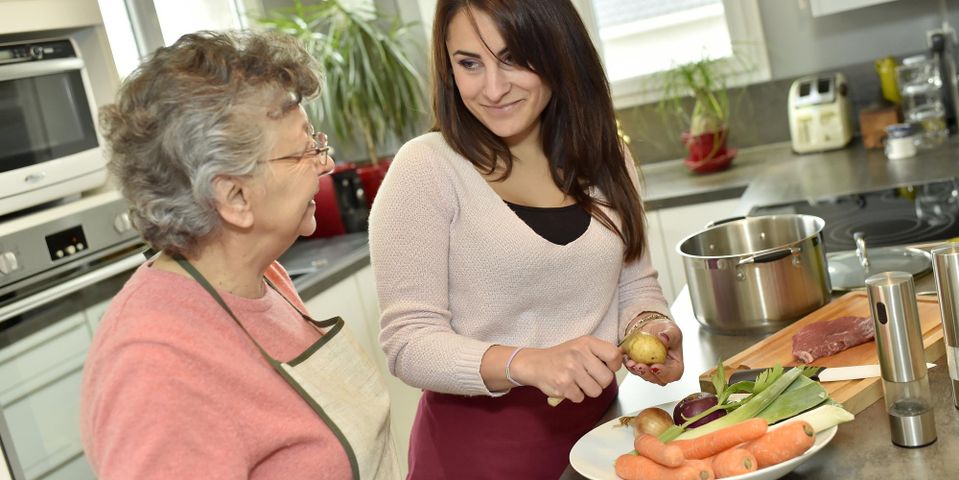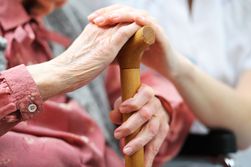
Maintaining a balanced diet is a crucial part of healthy aging. However, since seniors’ nutritional needs are much different than those of younger individuals, it can be difficult for older adults to make the right adjustments. Others may suffer from other age-related issues that can impact their ability to eat healthy foods. That’s why it’s critical to take meal prep seriously if you provide senior care for a loved one. To help you meet your relative’s needs, here are a few important points to know about aging and nutrition.
How Does Aging Impact Nutrition?
Physical Changes
Due to reduced activity and age-related organ changes, a senior’s calorie requirement can decrease. While individuals may require fewer calories, they still need to eat a balanced diet. Unfortunately, physical changes, such as reduced appetite, dental health problems, and digestive problems, can make it difficult to eat properly.
Diminished Senses
 Aging often leads to a reduced sense of smell and taste. Since these senses play major roles in enjoying food, some seniors may find it unappealing to eat certain items. As a result, they may become undernourished.
Aging often leads to a reduced sense of smell and taste. Since these senses play major roles in enjoying food, some seniors may find it unappealing to eat certain items. As a result, they may become undernourished.
Cognitive Decline
Dementia — a term used to describe diseases that cause cognitive decline — can cause older adults to experience memory loss and confusion. These patterns may make it difficult for them to remember when to eat, shop for food, or prepare meals.
What Nutrients Do Seniors Need?
Calcium
Calcium is essential to bone health, especially among seniors who have osteoporosis. Milk, yogurt, and cheese are great sources of calcium. Kale, soy products, and other calcium-fortified foods can also help.
Fiber
Older adults need extra fiber to maintain regular digestion, as well as reduce the risk of type 2 diabetes and heart disease. Adding whole grains and legumes to a diet can help increase fiber intake.
Potassium
In addition to reducing sodium intake, seniors can improve blood pressure by increasing their intake of potassium. Potassium-rich foods include spinach, broccoli, potatoes, and most fruits, such as oranges, grapefruit, and bananas.
Vitamin B12
Vitamin B12 absorption decreases with age. This can deplete seniors of a nutrient that supports nerve function and other bodily processes. While supplements are often needed, individuals can get B12 from chicken, turkey, eggs, and fish.
Unsaturated Fats
While saturated and trans fats are unhealthy (and a major cause of heart disease), unsaturated fats can help lower cholesterol to reduce the risk of heart attacks and stroke. These healthy fats are found in avocados, fish, olive oils, nuts, and seeds.
If your aging loved one is having trouble maintaining a healthy diet, Visiting Angels Toms River of Toms River, NJ, can help support their nutritional needs. Offering flexible home care services throughout the Ocean County region, these compassionate caregivers can assist with meal prep to ensure your relative is eating properly. They can also help manage health conditions that may impact one’s ability to stay nourished. To learn more about these convenient and affordable home care services, visit this provider online or call (732) 240-1050.
About the Business
Have a question? Ask the experts!
Send your question

